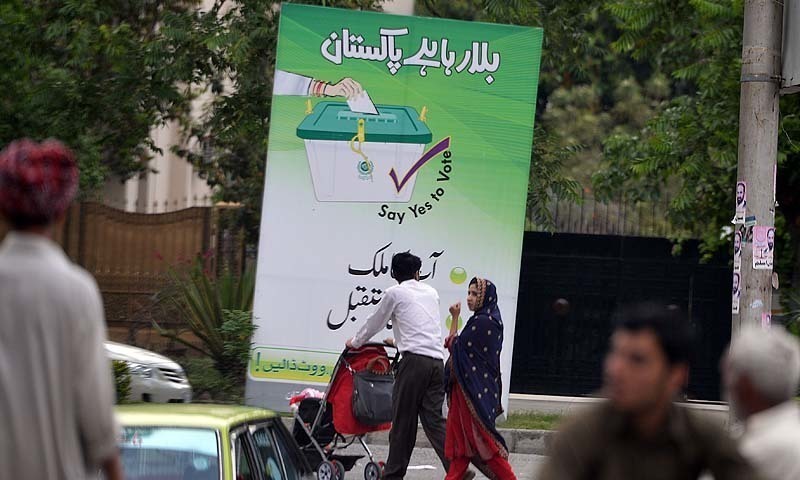
KARACHI: World Wildlife Fund for Nature (WWF) in collaboration with Pakistan Votes (PV), a non-partisan voter platform operating since January 2012, on Saturday released a short video of WWF’s project community members demanding citizens vote responsibly in the upcoming general elections scheduled to be held on 25 July 2018 across Pakistan.
In Pakistan, most of the seventeen Sustainable Development Goals (SDGs) are directly or indirectly linked to environmental sustainability, particularly those that address poverty, hunger, health and well-being, water and sanitation, clean energy, sustainable cities and communities, responsible consumption and production, climate action, life below water, and life on land. WWF, thus, aims to drive national action on SDGs implementation around the world.
Pakistan was ranked 147 out of 188 on the Human Development Index (2016), and 106 among 119 developing countries in the Global Hunger Index (2017). With an annual per capita availability of water at around 1000 cubic metres, Pakistan is fast becoming a water scarce country; many areas, including metropolises like Karachi, are in the grips of acute water crises already. Pakistan has one of the lowest forest covers and one of the highest rates of deforestation in the world. In addition, climate change impacts, such as the recent melting of a glacier in Ghizer district in Gilgit-Baltistan that has damaged infrastructure and rendered many families insecure, exacerbate these issues.
“Without healthy ecosystems, which can be measured by the richness of biodiversity and various other indicators outlined for the SDGs, there can be no integrated sustainable development,” said Hammad Naqi Khan, Director General WWF-Pakistan in his message, adding that the Pakistan is home to rich biodiversity and unique ecosystems, from mountains in the north to mangroves along the coast.
“It is the responsibility of the citizens of Pakistan to elect leaders who are committed to building a future where clean air and water, livelihood opportunities, adequate nutrition, clean energy, sustainable and equitable access to natural resources, among other necessities, are provided for everyone across the country,” said Khan.